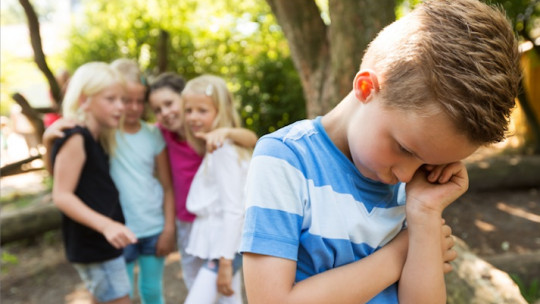Although schools are a crucial space for the education of children and young people, unfortunately they are not always the safest environment. Bullying, known as bullying, has become sadly common in educational centers, and is one of the most serious problems to deal with.
With bullying, what should be a space of tranquility and healthy socialization among young people becomes a hostile place that can greatly affect the mental health of the young person and seriously compromise their future.
For all these reasons, it is very important to know how to detect a case of this type and act in time. It is necessary to detect the various signals that boys and girls can send us and prevent bullying from going unnoticed. Most of the time, however, stalkers look for ways to keep the harassment hidden, making it difficult to detect early. Next, We present to you what bullying consists of and we give you some clues that will help you to detect it
What is bullying in schools?
Bullying is not a specific fight or argument between classmates. To be considered harassment, it must last over time and be more or less constant, to the point of seriously affecting the mental health of the harassed. It is also important to highlight that bullying is not only physical, but can also occur in the form of insults, humiliation, invasions of privacy, etc.
Specialists distinguish 4 ways in which this bullying manifests itself:
How to detect bullying at school?
Above all, the most important thing is not to let our guard down and remain alert to any sign that may attract our attention. Below, we give you a series of possible behaviors that can give you some clue that something is not right with your child. Remember that, many times, the bullied person hides the bullying they suffer either due to embarrassment or threat from the harasser, among others.
1. He doesn’t want to go to class
If your child doesn’t want to go to school, pay attention; It could simply be because of laziness, but it could also be because he is suffering abuse. Observe if this reluctance lasts over time and if it is accompanied by statements such as “I hate my colleagues.” For example.
2. He avoids leaving the house and has no friends
If your child is being bullied, they feel safe and secure at home. Therefore, if you notice that he hardly goes out and that he doesn’t meet up with any classmate outside of school hours, be interested. It could be because of shyness, but it could also be that someone is making him suffer at school.
It is quite common for the bullied to isolate themselves socially, either out of fear or because the bully himself encourages others to ignore him. Be that as it may, if you see that your child does not have friends or does not talk to you about any, consider that perhaps there is a bullying problem. This is also important for teachers, who They must be attentive in moments of leisure to detect if any student remains always and invariably alone
3. Poor academic performance
When a person is immersed in a conflictive situation, it is normal for them to have difficulty concentrating on their tasks. If you notice that your son’s performance has dropped, he pays attention; If you detect other factors such as low mood, apathy or irritability, you may be facing a bullying problem.
4. Your belongings are broken
Sometimes, bullies mistreat the belongings of the bullied, so if you notice that your child constantly loses things or brings them broken, pay attention, especially if when you ask him he appears restless and anxious.
5. Behavioral changes
They are probably the easiest to spot. The anxiety and stress that come with enduring bullying lead to changes in your child’s behavior It may be that he is always nervous, that he loses his appetite, that he cannot sleep, that he suffers from nightmares… any significant change is worth taking into account when assessing whether he is actually suffering from a bullying process.









